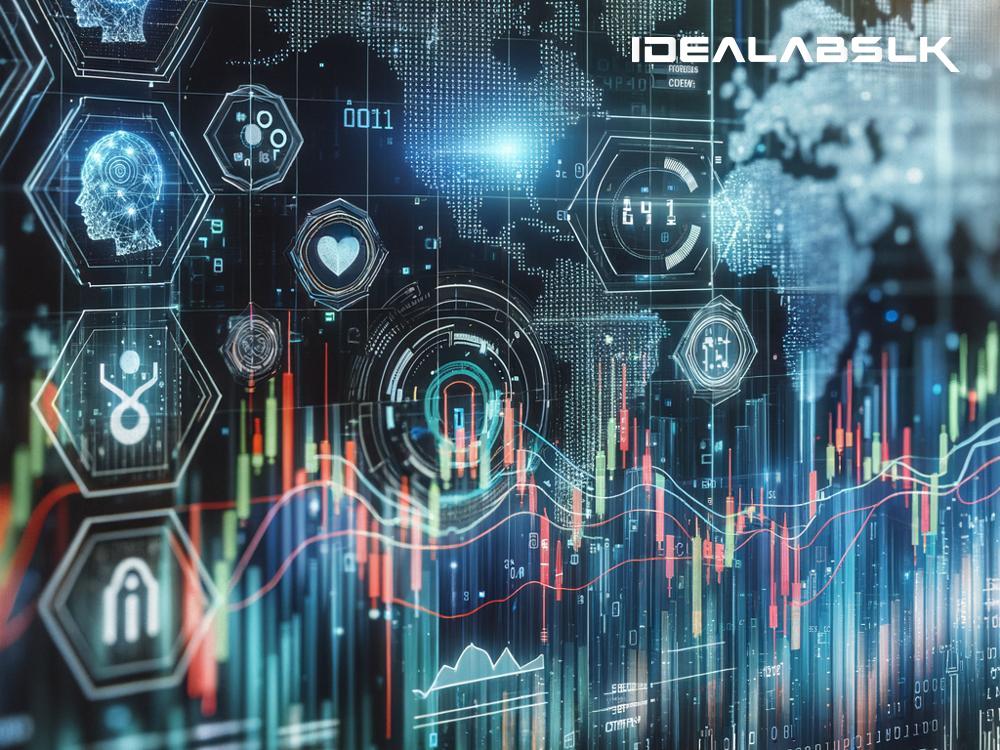In the bustling world of stock trading, where every second counts and the stakes are sky-high, traders are constantly on the lookout for tools and technologies that can give them an edge. Enter Artificial Intelligence (AI) - the game-changer that's transforming the landscape of stock trading. Let's delve into how AI-powered systems are revolutionizing the way traders operate, helping them to make more informed decisions, reduce risks, and, most importantly, maximize profitability.
Understanding AI in Trading
Artificial Intelligence refers to computer systems that can perform tasks that typically require human intelligence. When applied to trading, AI is used to analyze vast amounts of market data, recognize patterns, predict market trends, and even execute trades. This advanced tech can sift through complex, chaotic market environments to spot opportunities that might be invisible to the human eye.
The Power of Machine Learning
At the heart of AI's success in trading is a subset called Machine Learning (ML), where algorithms learn from data, improving their predictions over time. Imagine a system that learns from its successes and mistakes, constantly evolving to become more effective in predicting stock movements. That's precisely what ML brings to the trading table.
Real-time Analysis and Speed
One of the significant advantages of using AI in trading is its ability to process and analyze data in real-time. Financial markets are incredibly volatile, where conditions can change in the blink of an eye. AI systems can keep up with this pace, digesting and making sense of new information as it comes. This capability allows traders to make swift, informed decisions, potentially outpacing competitors relying solely on human analysis.
Risk Management
Risk is an inherent part of trading. However, AI can play a pivotal role in managing and mitigating these risks. By analyzing historical data and market trends, AI models can forecast probable market downturns or risks associated with specific stocks or sectors. Armed with this information, traders can adjust their strategies, making decisions that balance potential returns against risks.
Customization and Learning from Patterns
Every trader has a unique strategy, tolerance for risk, and market perspective. AI systems can be tailored to align with these individual preferences, learning from the trader's past decisions to enhance future recommendations. Furthermore, by identifying recurring patterns in market data, AI can pinpoint profitable trading opportunities that might go unnoticed by the human eye.
Automation and Efficiency
AI also brings automation to the trading table. By automating routine tasks, traders can focus on strategy development and other high-level decision-making processes. This efficiency not only saves time but also increases the number of potential trades, broadening the opportunities for profitability.
Emotional Objectivity
One of the most overlooked advantages of AI in trading is its emotional objectivity. Human traders, regardless of experience, can make decisions clouded by emotions like fear or greed. AI, on the other hand, operates solely based on data and predefined criteria, eliminating emotional biases from trading decisions. This objectivity can lead to more consistent and rational decision-making.
Challenges and Considerations
While the potential of AI in trading is undeniable, it's not without challenges. The reliability of AI systems depends on the quality and quantity of the data they're trained on. Moreover, AI models can be complex and require constant tuning and oversight by skilled professionals. Additionally, the dynamic nature of financial markets means that AI systems must be adaptable, capable of evolving with changing market conditions.
The Future of AI in Trading
As technology advances, the role of AI in trading is set to grow even more significant. With improvements in data processing capabilities, machine learning algorithms, and computational power, AI systems will become even more sophisticated. This progress promises to open up new strategies for trading, further enhancing the ability of traders to maximize profits while minimizing risks.
Conclusion
AI-powered systems are reshaping the landscape of stock trading, offering traders unparalleled insights, speed, and efficiency. While not a silver bullet, AI in trading is an invaluable tool in the modern trader's arsenal, providing a competitive edge in the quest for profitability. As we move forward, the intersection of AI and trading will likely continue to evolve, presenting exciting opportunities and challenges for traders worldwide. The era of AI-driven trading isn't just coming; it's already here.

